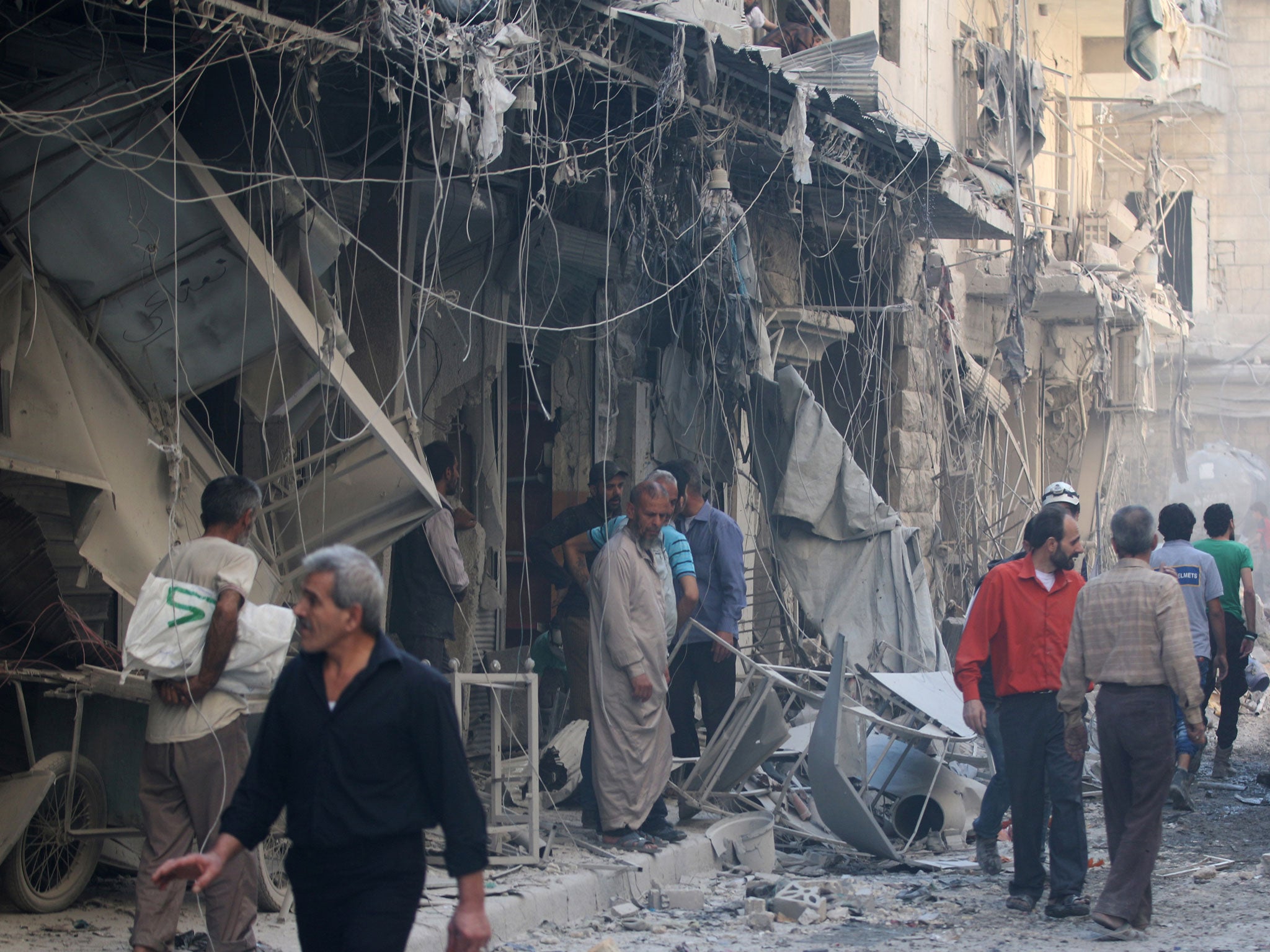With no military answer in Syria, the focus must be on bringing aid to the beleaguered
The tragedy of Aleppo is so grotesque, however, that the prospect of what Boris Johnson calls ‘kinetic action’ has to be kept under consideration

It is hard to believe that just a few short months ago the Western powers and Russia appeared as allies in the Syrian conflict, united by opposition to Isis and an apparent desire to bring the wider conflict to an end.
Now relations between the foreign actors involved in Syria are at an all-time and potentially dangerous low. The US administration has demanded that Russia be investigated for war crimes. Britain’s Foreign Secretary, Boris Johnson, has called for the public to protest outside the Russian embassy and has warned President Vladimir Putin that he risks making his nation a pariah. Military intervention by the West to save the trapped and petrified people of Aleppo is said to be under consideration.
Mr Johnson is right that there is intense public sympathy for those who are besieged in Aleppo and who are under daily attack from forces loyal to the Assad regime and its Russian allies. Whether, as he suggests, that sympathy would translate into widespread public support for a military response is much less certain.
Still, the tragedy of Aleppo is so grotesque that the prospect of what the Foreign Secretary euphemistically refers to as “kinetic action” has to be kept under consideration.

The bigger problem for Britain and its allies is that veiled threats about military intervention carry little to no weight in Moscow or Damascus. The idea that the US and others could unilaterally establish a no-fly zone is more pie in the sky than eye in the sky. Attempts by American and other air forces to keep Syrian and Russian bombers on the ground would either be ignored or, worse, lead to genuine confrontation.
Likewise, the possibility of seeking out and destroying the regime aircraft responsible for dropping so-called barrel bombs carries inherent risks of retaliatory attacks by Assad’s forces or those of his allies. Global security is perilous enough without precipitating an armed confrontation between Russia and the West.
Other options to be discussed by Mr Johnson with counterpart foreign ministers this weekend include increased humanitarian efforts; improved monitoring of flights made by Russian jets; and perhaps the issuing of warnings to Aleppo’s residents when it is believed an attack is imminent. All are sensible enough but all are unlikely to stop the carnage.
And this is the crux of the matter: international opponents of Bashar al-Assad do not have the will to take the only action that would ultimately be effective against him – a large-scale military assault. In part, that reflects the lack of public appetite in the UK, US and elsewhere for getting bogged down in another Middle Eastern war. But it is also because there are no guarantees that bringing down Mr Assad now will make the situation any better. It might easily make things worse and turn a vicious civil, and proxy, war into a global conflagration.
The actions of the Syrian regime forces – and of its allies, Russia and Iran – are repugnant and should be held up to as much scrutiny as the international community can muster. But in the absence of a viable military solution, the West must for now focus on ways to bring humanitarian relief to the city of Aleppo and on ways by which its residents can be taken out to places of safety.
That is no easy task and it will require every ounce of diplomatic pressure that the West and the United Nations can bring to bear, especially on Russia, if Aleppo’s people are not to be as comprehensively destroyed as the city in which they are imprisoned.
Join our commenting forum
Join thought-provoking conversations, follow other Independent readers and see their replies
Comments
Bookmark popover
Removed from bookmarks